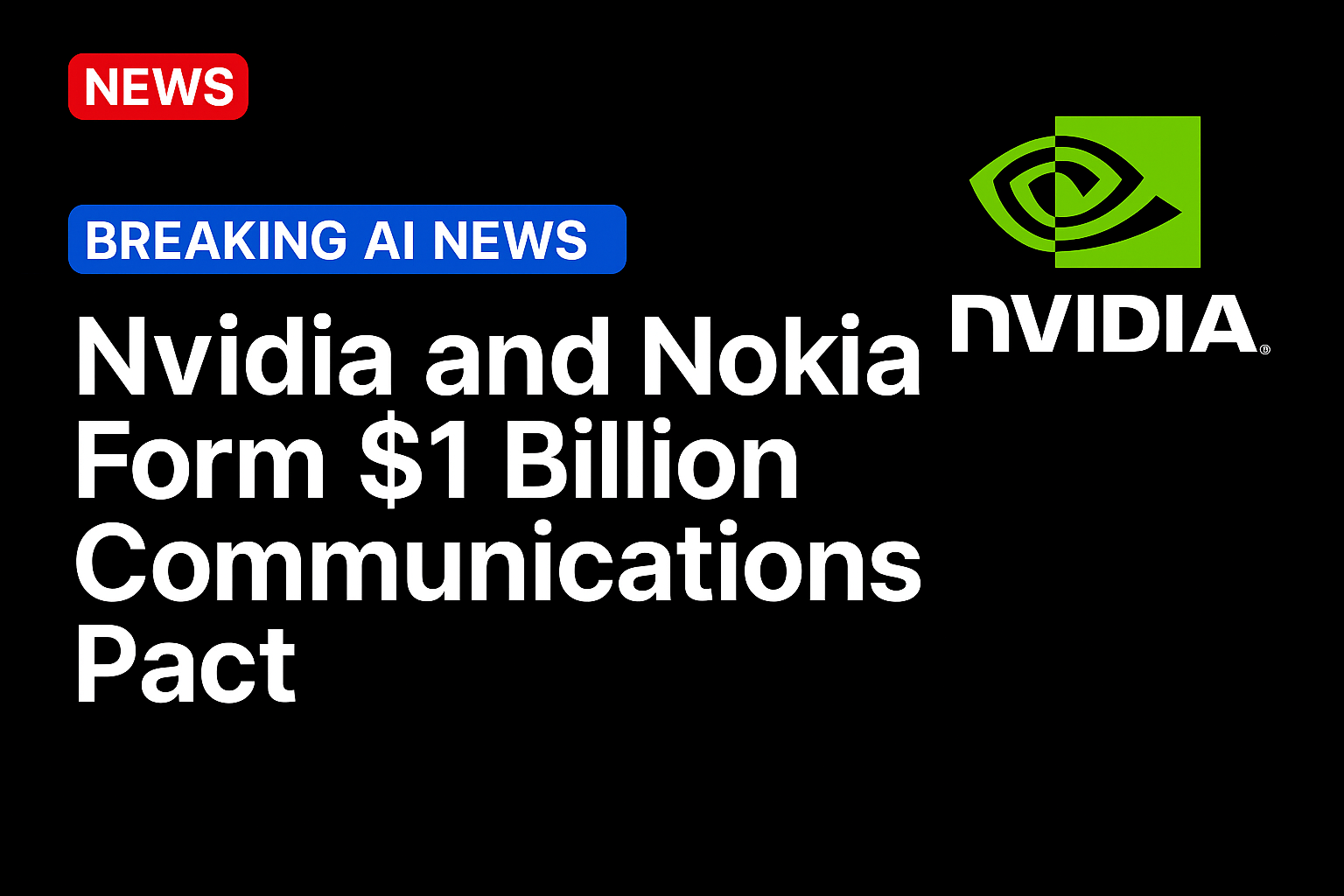The partnership, announced Tuesday (Oct. 28), involves the addition of Nvidia-powered, commercial grade artificial intelligence radio access network (AI-RAN) products into Nokia’s RAN portfolio.
This will allow communication service providers to launch AI-native 5G-Advanced and 6G networks on Nvidia platforms, the world’s most valuable company said in a news release, calling the collaboration “the beginning of the AI-native wireless era.”
The partnership also addresses the fast-growing AI-RAN market, with the larger RAN market expected to exceed $200 billion by 2030, Nvidia said, citing data from analyst firm Omdia.
Together, Nvidia and Nokia are also laying the infrastructure for telecom providers by delivering distributed edge AI inferencing at scale.
“Telecommunications is a critical national infrastructure — the digital nervous system of our economy and security,” said Jensen Huang, founder and CEO of Nvidia.
“Built on Nvidia CUDA and AI, AI-RAN will revolutionize telecommunications — a generational platform shift that empowers the United States to regain global leadership in this vital infrastructure technology. Together with Nokia and America’s telecom ecosystem, we’re igniting this revolution, equipping operators to build intelligent, adaptive networks that will define the next generation of global connectivity.”
The two companies plan to work with T-Mobile U.S. to test AI-RAN technologies as a part of the 6G innovation and development process beginning next year.
Nvidia last year introduced its AI Aerial platform, which combines software and hardware to infuse AI into RAN technology. As PYMNTS wrote, this move suggests a shift in how wireless networks operate, with wide-ranging implications for retail and logistics industries.
“More advanced AI systems will be developed which will feature recommendation engines and dynamic pricing models; there will be faster and more efficient communication between networks and users due to high data throughput,” Chris Dukich, founder of digital signage software company Display Now, told PYMNTS.
In other Nvidia news, PYMNTS wrote earlier this month about the company’s warning that the same autonomy that makes AI agents powerful may also make them vulnerable.
“An overly privileged agent treating untrusted data as trusted can be turned into a tool working on behalf of the attacker,” the company wrote on its blog. It added that although agentic coding workflows have “unlocked rapid development capabilities across the industry,” their power must also come with “mitigating policies” to prevent misuse.
Source: https://www.pymnts.com/


